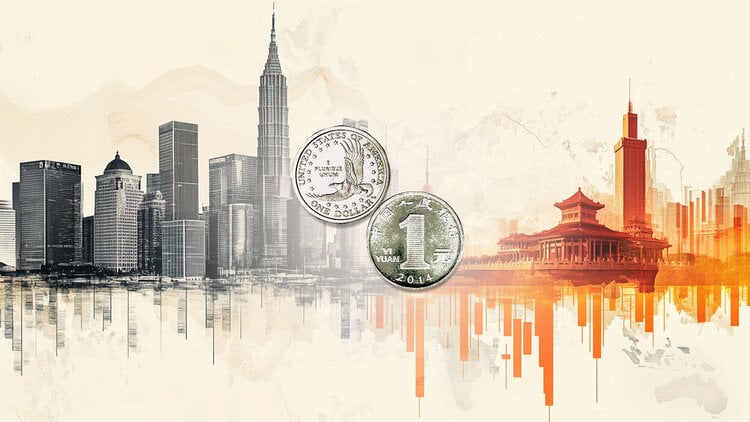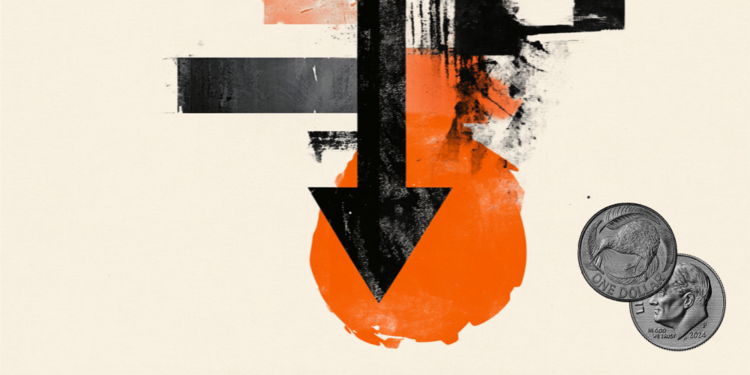Chinese state defense companies have maintained business relationships with Russian defense companies over the past year, even as many of the world’s major economies cut ties with Moscow.
Customs records analyzed by CNN show that key companies within both countries’ vast military-industrial complexes continued their years-long relationships despite the horror Russia unleashed on Europe.
Records show that throughout 2022, at least until mid-November, the defense company Poly Technologies based in Beijing, sent a dozen shipments — including helicopter parts and radio equipment — to a state-backed Russian company sanctioned by the United States for its connection to leader Vladimir Putin’s war in Ukraine.
Poly Technology’s long-term business partner – Ulan Ude Aviation Plant a supplier of military-grade helicopters – also continued to ship parts and several helicopters to the Beijing-based company last year, trade data shows.
Most of the parts included in shipments to Russia were labeled for use on the Mi-171E multirole helicopter, designed for transport, search and rescue.
According to the Stockholm International Peace Research Institute (SIPRI), China started importing this helicopter model from Russia more than 10 years ago.
Three Poly Technologies shipments were labeled as including products for the operation or service of the Russian-built Mi-171SH, a military transport helicopter that can be equipped with weapons and was used in Moscow operations in Ukraine.
There is no evidence that any of the goods exchanged are directly fueling Russia’s war.
Customs records came from two datasets:
- Import Genius, a business data company whose information is collected by secondary sources of official Russian customs records and shipments.
- Washington-based think tank C4ADS that gathers aggregated official customs records from multiple third-party providers
A CNN has not independently verified the data, which may provide a partial but not complete picture of trade.
Military and security experts say the parts sent by the Chinese company to Russia are fairly basic equipment for domestically designed aircraft that could form part of existing contracts and standard business relationships between the companies.
But last year’s trade underscores the enduring ties between key players in the state-backed defense sectors on both sides – relationships that have strengthened over the past decade as Putin and Chinese leader Xi Jinping developed their strategic alignment.
Experts say these well-established networks could be leveraged if Beijing provided direct, lethal aid to the Kremlin’s war effort.
Western leaders have warned in recent weeks that China is considering such a move.
Beijing has denied this, ridiculed the warning as “defamation” and has repeatedly defended its “normal” trade with Russia and rejected what it calls “unilateral” sanctions against Moscow.
Evolving partnership
Beijing and Moscow’s military ties have evolved dramatically since the height of the Cold War – a period marked by mutual hostility and ideological divergence.
While some friction remains, the two authoritarian neighbors have grown closer, especially under Putin and Xi, who together declared a “no boundaries” partnership just weeks before Russia invaded Ukraine. This includes a growing relationship of security.
After the fall of the Soviet Union, a robust but decidedly one-way arms trade flourished in which Russia traded its superior weaponry to China.
More recently, the rapid modernization of the Chinese military has begun to change this dynamic.
In 2021, Putin boasted that the two countries were “together developing certain types of high-tech weapons”, according to Russian state media, and praised their joint military exercises – which have also expanded in scope and geographic reach.
Then came the Ukraine war. So far, China has avoided applying Western sanctions against those who support Russia – although 10 Chinese companies have been hit by war-related US restrictions.
A key question for Western officials is whether existing defense relationships could be used by China to provide lethal aid to the Kremlin’s war effort, which is believed to be low on ammunition and weapons.
Last month, the CNN reported that US intelligence officials believe the Chinese government is considering sending drones and munitions to Russia.
On March 7, China’s new foreign minister, qin gang said the country “did not supply arms to either side” of the war and denounced American concerns on the matter as hypocritical.
Chinese foreign affairs observers say their leaders are well aware of the reputational and economic damage if it is perceived to be supporting Moscow militarily – and many are skeptical that Beijing would take such a step to help a nuclear-armed Russia at this point.
“Russia is losing this war in general terms… but it is not a loss that would lead to the end of Putin and the democratization of the country, so I see no reason for China now to do more than it is doing,” Gabuev said.
trade in progress
Goods traded between Chinese and Russian defense firms in the data revised by CNN it is not the munitions that the Russian military needs most in a year of onslaught on Ukraine.
China is also not alone in continuing to buy from a Russia at war.
When asked by CNN on remittances from China to sanctioned Russian companies, the Ministry of Foreign Affairs said it was “not aware of the situation” and that the country “is firmly on the side of dialogue and peace”.
The Kremlin did not respond to a request for comment from the CNN .
On February 27, his spokesman said that Russia “does not see the need to comment further” on allegations that Russia has asked China for military equipment, which he said has already been refuted by Beijing.
Poly Technologies describes itself on its website as the main subsidiary of China Poly Group, a leading state-owned company, “exclusively authorized by the Chinese central government for import/export of defense systems”.
The company was sanctioned by the US in 2013 under rules targeting companies that supply Iran, North Korea and Syria, and again in January last year for alleged missile proliferation.
China Poly Group did not respond to a request for comment.
The company’s business partner, Ulan Ude Aviation Plant, a subsidiary of the state-owned Russian Helicopters manufacturer, which makes the widely used Mi-8/17 series helicopters closely integrated with Russian military transport, also did not respond to a request for comment.
Two other major companies appear in the customs data – China’s AVIC International Holding, controlled by state-owned Aviation Industry Corporation of China, and Russia’s United Engine Corporation (UEC), which is part of state-owned defense giant Rostec.
AVIC International’s shipments to UEC made up to July last year were listed as contractual obligations under warranty, and export records show that UEC shipped parts for the same engine model to China, including in December, according to data from Import Genius.
AVIC International and UEC did not respond to requests for comment.
The Wall Street Journal previously mentioned shipments made by Poly Technologies and AVIC International Holding to Russian partners.
“Depth and breadth”
Washington’s stance is that any company that supplies or operates in the Russian defense sector risks sanctions.
But China may not be overly concerned about the transactions shown in the trade data revised by the CNN according to Yun Sun, director of the China Program at the Stimson Center think tank in Washington.
“This type of export has to be approved by the government. But given the nature of these parts and the fact that (Poly Technologies) has been under US sanction since 2013, the government may not see the need not to approve,” she said.
Some experts have raised questions about whether aviation parts coming to Russia from China – many of which are labeled “used” or originating in Russia – could still be spare parts needed by a Russia at war.
Sun said it was no surprise that Russia continued to fulfill contracts for equipment bought in China, but warned that products going in the opposite direction could be “re-imported by Russia to supply its war wear”. It is also unlikely that the full picture will be revealed.
“Neither China nor Russia want Western intelligence to be aware of the depth and breadth of their strategic alignment,” said Alex Korolev, senior lecturer in Politics and International Relations at the University of New South Wales in Australia.
If China were to provide lethal aid, Korolev added, “everything would be done to cover it up”. “And one way to cover it up is to make it look like it’s just part of regular, long-term military technical cooperation – rather than a response to war.”
Source: CNN Brasil
Bruce Belcher is a seasoned author with over 5 years of experience in world news. He writes for online news websites and provides in-depth analysis on the world stock market. Bruce is known for his insightful perspectives and commitment to keeping the public informed.







